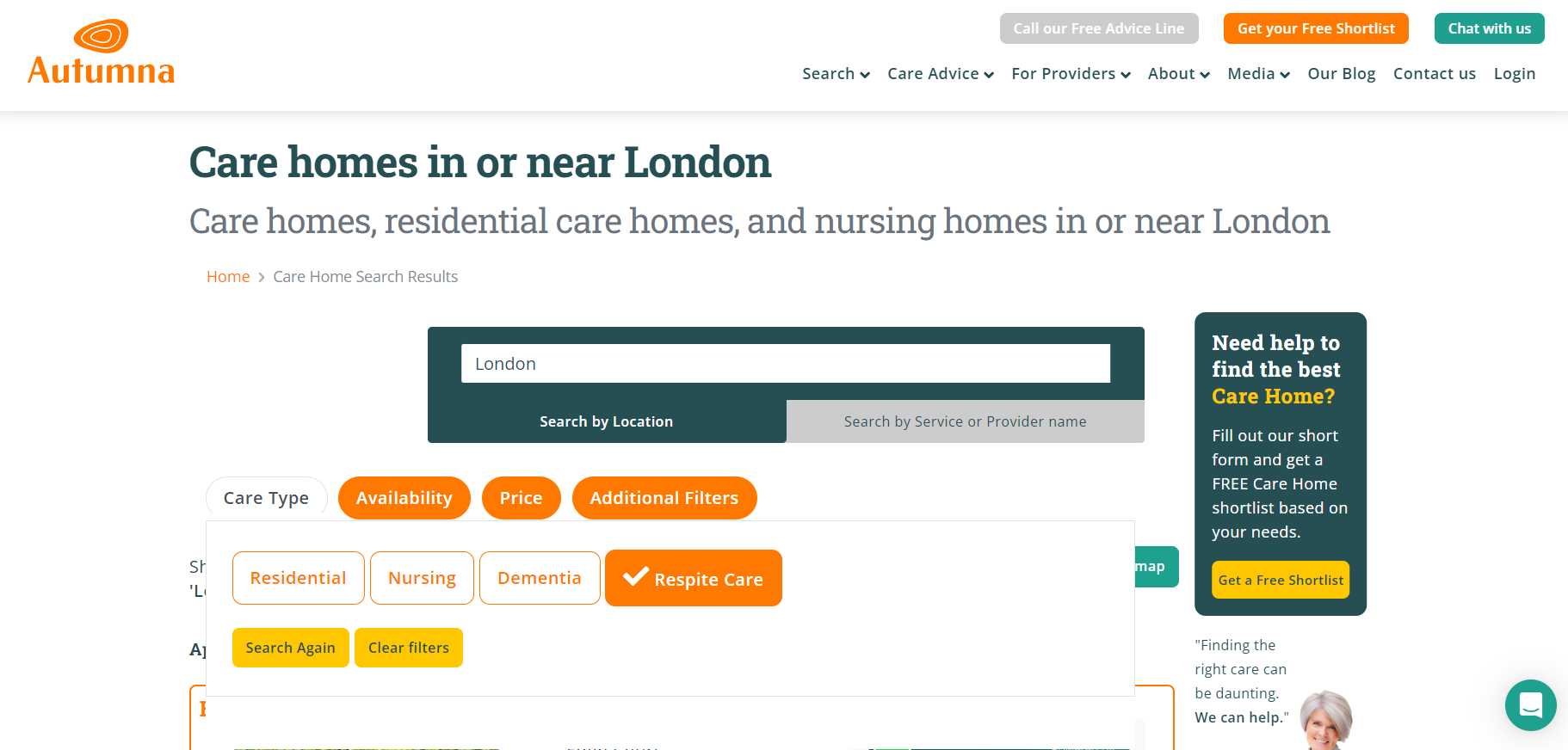Posted by Janine Griffiths
Signs It’s Time to Consider Short Term Respite Care

Making the decision to place a loved one in short term residential respite care can be a tough and emotionally charged process.
While you may wish to care for your loved one for as long as possible, prioritising their safety and well-being might require additional support within a safe, secure environment.
Understanding the benefits of residential respite care and recognising the signs that it may be the right choice can turn a challenging decision into a positive step toward improving your loved one's quality of life.
In this blog, we detail what residential respite care involves and highlight the main signs that it may be time to consider this option for your loved ones.
What is short term residential respite care?
Short term respite care is a type of temporary care provided in a dedicated, residential all-inclusive facility, offering short-term relief for primary caregivers who need a break from their caregiving duties. This service ensures that the individual receiving care continues to have their needs met in a safe, supportive environment while their regular caregiver takes time off to rest, attend to personal matters, or manage other responsibilities.
These facilities employ a committed team of trained professionals who deliver continuous care, covering basic medical supervision, support with everyday tasks, and engaging social events.
Why is short term respite care needed?
Respite care is crucial as it provides family caregivers with a much-needed break from their demanding roles, allowing them to rest, recharge, and maintain their own well-being. By offering temporary relief, respite care helps prevent caregiver burnout, which reduces stress and feelings of resentment.
This support enables caregivers to return to their duties with renewed energy and a positive mindset, ultimately benefiting both the carer and the individual receiving care. Additionally, respite care reduces social isolation for both parties, and strengthens connections and engagement for your loved one through various social activities and interactions.
For more information about the benefits of respite care, check out our video below.
Different types of respite care
There are several different types of respite care. These include:
Short stay in a care home
This is a type of temporary respite care in a residential care home or nursing home that offers short-term facilities. In this blog, we focus mainly on residential respite care.
Day Care
Day care provides companionship and activities for elderly people. These services can be offered in care facilities or through organisations like Age UK.
Respite Holidays
Respite holidays offer breaks for carers and specialised accommodation for individuals requiring extra care. These services are provided by holiday firms, hotel companies, and cruise lines.
Home care
Home care involves a carer providing care within a person's home to minimise disruption. This care can be regular or short-term, such as for a week.
Emergency respite care
This involves a family or carer agreeing to step in and provide care if extra assistance is needed. Ideally you should have an emergency care plan in place that will outline who can step in and care for your loved one when you are unable to and what provisions need to be made for them. When arranging emergency care, ensure the carer is able to gain access to the building and that they have everything they need to provide the right type of care.
Sitting services
Sitting services are offered by some charities or carers’ organisations. These services employ trained volunteers that will keep your loved one company when you are away. Not all of these volunteers provide personal care but they can help in other ways such as going to the shops, making meals or helping with household tasks. It is also possible to get paid sitters that do provide personal care. Typically, the person you care for will need an assessment before a sitting service can be used.
Signs it is time to consider short term respite care
Below are some of the main signs to look out for when considering short term residential respite care. While the circumstances of each family member vary, the signs typically indicate that it may be time to seek additional assistance.
Illness or additional care needs
Illness or surgery can leave your loved ones needing more support than usual. Short term respite care offers a temporary solution, providing the perfect environment for a smooth recovery. At a residential respite care facility, staff can manage medications, assist with daily tasks like dressing and bathing, and encourage regained independence while your loved one is healing. Some respite care facilities even have physiotherapists or occupational therapists who visit to help your loved one gain mobility and stay as active as possible during recovery.
Chronic medical condition
If your loved one has a long-term, chronic medical condition, then it may be time to seek extra assistance.
A respite care facility will have staff members that are able to provide the specialised care and attention necessary to manage their condition effectively. This professional support ensures that medical needs are met consistently, which can manage symptoms, prevent complications, and ensure their overall well-being. This gives you the peace of mind of being able to take a necessary break without compromising their health.
Relationship declining
Sometimes the stress associated with looking after a loved one can take its toll and your relationship with them could suffer as a result. If this is starting to happen, it is time to seek help.
A respite care facility can give you the time and space you need to help you feel less overwhelmed. This support can help you maintain a healthier relationship by reducing tension and giving both of you the opportunity to enjoy quality time together without the pressures of caregiving.
Social life is non-existent
Similarly, caring for a loved one can place significant demands on your energy and time. While looking after a loved one can be rewarding, it can also take a toll on your social life. This can lead to you feeling lonely and isolated. Sometimes, these feelings of loneliness can also extend to your loved one. These feelings can be alleviated with respite care, which can widen your social circle and help to give both you and your loved one some space. For more information on the ways respite care can help reduce social isolation and loneliness, check out our blog, ‘Day care, a first step, respite, or to have fun!’
Making more mistakes
If your caregiving responsibilities lead to you feeling stressed and tired, and you find yourself making too many mistakes, then it is important to seek additional help.
For example, if you are administering medication or managing diets, it is important that all of this is done correctly as mistakes can potentially impact the health of your loved one.
A break can give you the space you need to focus and recharge, ensuring that you can provide the best care possible upon return.
Stressed or depressed
Should you notice signs of depression or anxiety, it is important to take a break. Short-term residential respite care can ensure that you can continue providing care with a healthier, more balanced approach.
Too many tough days
Some days are just tough and it can make every day seem like a struggle. When you are at this point, even the simplest of tasks can feel like a burden. If this is what is happening, it is important to seek help. When the balance starts to lean towards more bad days than good, short-term respite care can help restore the balance and make the time with your loved one more enjoyable.
How to find a temporary residential respite care home
The easiest way to start is to use Autumna's care home finder and enter your location. Under care type, select ‘respite care’. In the example below, we selected London as our location.

If you feel unsure about whether or not short term residential respite care is the right option for you, talk it over with one of our friendly and impartial advisors. They love to listen and can assist you with your search. Call 01892 335 330 or email info@autumna.co.uk.
Receive a Free Respite Care Provider Shortlist!
Let our expert team of advisers get your search off to a great start.
Tell us a little about your needs and we'll send you a bespoke shortlist of respite care providers! Click the button below to begin, it takes just a few minutes.
Other articles to read
From the blog

Older Persons Care Advice
How to shortlist care homes in Exeter
April 17th, 2025
Looking for an adult day care centre near you? Discover how to find safe, joyful care for your loved one—and support for yourself—on Autumna.

Older Persons Care Advice
What is Discharge to Assess?
April 16th, 2025
Discover how Discharge to Assess (D2A) supports faster recovery, reduces hospital stays, and how Autumna helps simplify finding the right care.

Older Persons Care Advice
What are the benefits of person-centred care?
April 9th, 2025
Discover the benefits of person-centred care—from improved wellbeing to better outcomes—for individuals, families, and care providers alike.






